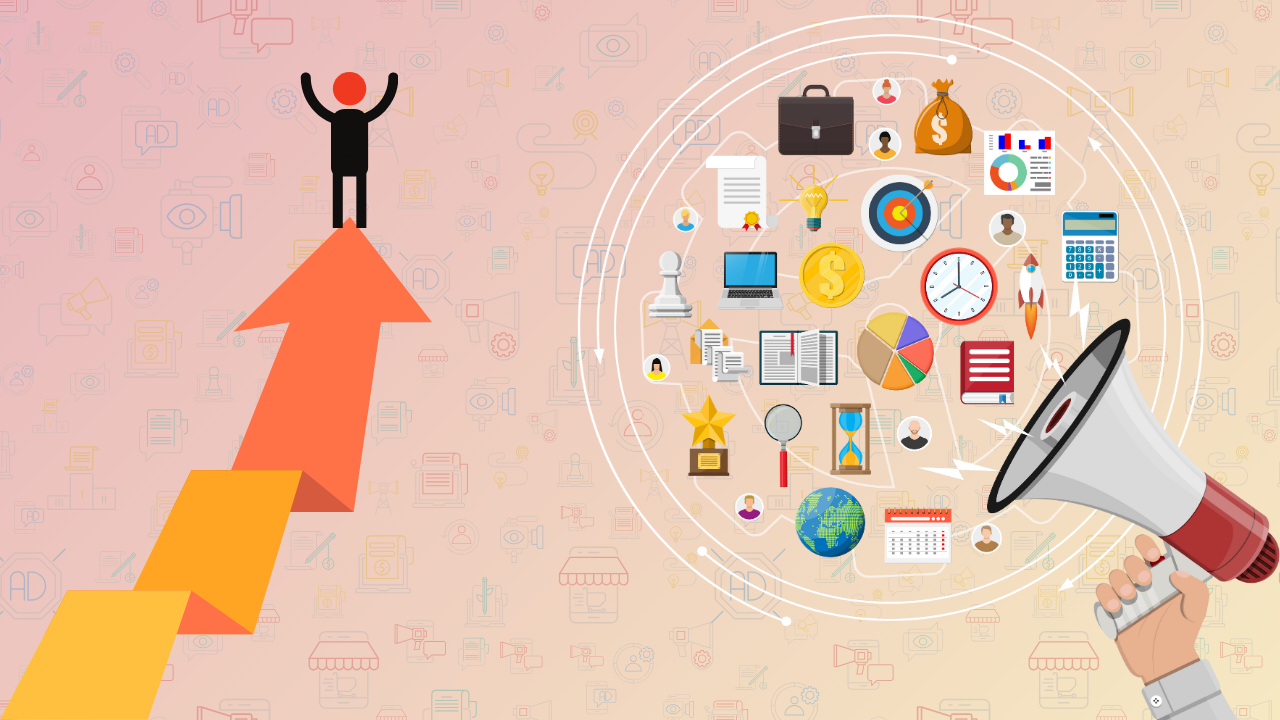In today’s hyper-connected world, businesses cannot rely solely on traditional marketing methods to reach potential customers. Digital marketing has emerged as a vital tool for businesses to enhance visibility, engage with audiences, and drive sustainable growth. From social media campaigns to search engine optimization (SEO), digital marketing solutions empower businesses to thrive in competitive markets.
Understanding how digital marketing helps in business growth is crucial for business owners, marketers, and entrepreneurs aiming to maximize their online presence and profitability.
What is Digital Marketing?
Digital marketing encompasses all marketing efforts that use digital channels to connect with customers. These channels include:
- Search Engines (Google, Bing)
- Social Media Platforms (Facebook, Instagram, LinkedIn)
- Email Marketing
- Content Marketing
- Pay-Per-Click (PPC) Advertising
- Affiliate and Influencer Marketing
Unlike traditional marketing, digital marketing allows businesses to reach a global audience, measure results in real-time, and optimize strategies for maximum efficiency.
Key Benefits of Digital Marketing for Business Growth
1. Increased Online Visibility
A strong online presence ensures that potential customers can easily find your business. SEO, local SEO, and content marketing are critical in improving search engine rankings. Businesses that rank higher on search engines experience more traffic, leads, and conversions.
Example: An e-commerce store optimized for SEO can appear on the first page of Google when users search for relevant products, driving targeted traffic.
2. Cost-Effective Marketing
Digital marketing often provides a better return on investment (ROI) than traditional advertising. Small businesses can leverage social media ads, email campaigns, and content marketing without huge budgets.
Tip: Platforms like Google Ads and Facebook Ads allow precise targeting, ensuring that marketing dollars are spent on potential customers rather than broad audiences.
3. Targeted Audience Engagement
Digital marketing enables businesses to engage with a specific audience based on demographics, interests, and behavior. Personalized messaging strengthens customer relationships and boosts brand loyalty.
Example: Personalized email campaigns can lead to higher open rates, click-through rates, and conversions.
4. Measurable Results
One of digital marketing’s greatest advantages is its ability to track and analyze performance. Businesses can monitor website traffic, social media engagement, lead conversions, and ROI in real-time.
Tool Suggestions: Google Analytics, SEMrush, HubSpot, and social media insights provide comprehensive analytics for informed decision-making.
5. Brand Awareness and Credibility
Content marketing, social media, and online reviews build trust and credibility among potential customers. By consistently providing valuable content, businesses can position themselves as industry leaders.
Example: Publishing informative blog posts or how-to videos demonstrates expertise and builds long-term customer trust.
6. Enhanced Customer Interaction
Digital channels provide two-way communication, allowing businesses to interact with customers directly. Social media comments, live chat, and email support enable immediate responses and improved customer satisfaction.
7. Scalability and Flexibility
Digital marketing campaigns can be easily scaled or modified to suit business objectives. Whether launching a local campaign or a global initiative, businesses can adapt strategies in real-time.
8. Competitive Advantage
Companies that leverage digital marketing effectively can outperform competitors. By staying updated on trends, analyzing competitors, and optimizing campaigns, businesses maintain an edge in their industry.
How Digital Marketing Drives Revenue Growth
Digital marketing directly contributes to business growth by:
- Generating Leads: Optimized landing pages, SEO, and PPC campaigns attract potential buyers.
- Improving Conversion Rates: Personalized offers and retargeting campaigns convert leads into paying customers.
- Increasing Customer Retention: Engaging content, email newsletters, and loyalty programs encourage repeat purchases.
- Expanding Market Reach: Social media and digital ads help businesses reach audiences beyond geographical limitations.
Digital Marketing Strategies for Business Growth
1. Search Engine Optimization (SEO)
SEO improves website visibility on search engines by optimizing content, website structure, and backlinks. A well-optimized site drives organic traffic, increasing opportunities for conversions.
2. Content Marketing
High-quality content attracts and educates potential customers. Blog posts, videos, infographics, and case studies position businesses as thought leaders while generating leads.
3. Social Media Marketing
Social media platforms allow businesses to connect directly with their audience. Regular posts, targeted ads, and influencer collaborations enhance brand awareness and engagement.
4. Email Marketing
Email campaigns nurture leads, promote products, and maintain customer relationships. Personalization and segmentation improve open rates and conversions.
5. Pay-Per-Click (PPC) Advertising
PPC campaigns provide immediate visibility and traffic. By targeting specific keywords and demographics, businesses can reach potential customers actively searching for their products.
6. Analytics and Optimization
Continuous monitoring of campaigns ensures maximum ROI. Analyzing data helps refine strategies, allocate resources efficiently, and stay ahead of competitors.
Common Challenges in Digital Marketing
- High Competition: Many industries are saturated with digital campaigns.
- Keeping Up with Trends: Algorithms and trends change frequently.
- Measuring ROI: Attribution across multiple channels can be complex.
- Content Quality: Creating valuable, engaging content consistently is challenging.
FAQs About Digital Marketing and Business Growth
How does digital marketing help in business growth?
Digital marketing drives growth by increasing visibility, generating leads, improving customer engagement, and providing measurable results that inform business decisions.
What are the most effective digital marketing strategies for small businesses?
SEO, social media marketing, email marketing, and content marketing are highly effective for small businesses due to their cost-efficiency and scalability.
How long does it take to see results from digital marketing?
Results vary depending on strategy and competition. SEO and content marketing may take 3–6 months, while PPC and social media ads can show results within weeks.
Can digital marketing improve customer retention?
Yes, personalized campaigns, engaging content, and loyalty programs help retain customers and encourage repeat business.
Is digital marketing more cost-effective than traditional marketing?
Generally, yes. Digital campaigns allow precise targeting, measurable ROI, and flexibility, making them more efficient than traditional media.
Conclusion
Digital marketing solutions are essential for driving business growth in today’s competitive landscape. From boosting online visibility to increasing revenue, these strategies offer measurable, cost-effective results that adapt to changing market trends. Businesses that leverage digital marketing through Rankaspect not only reach more customers but also gain a competitive advantage, strengthen brand credibility, and secure long-term success.





Comments are closed